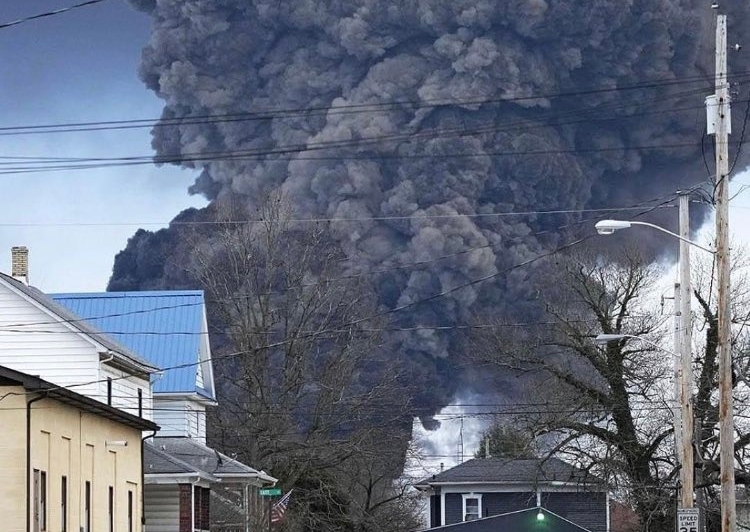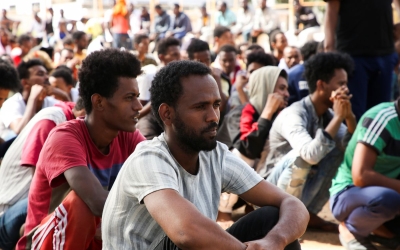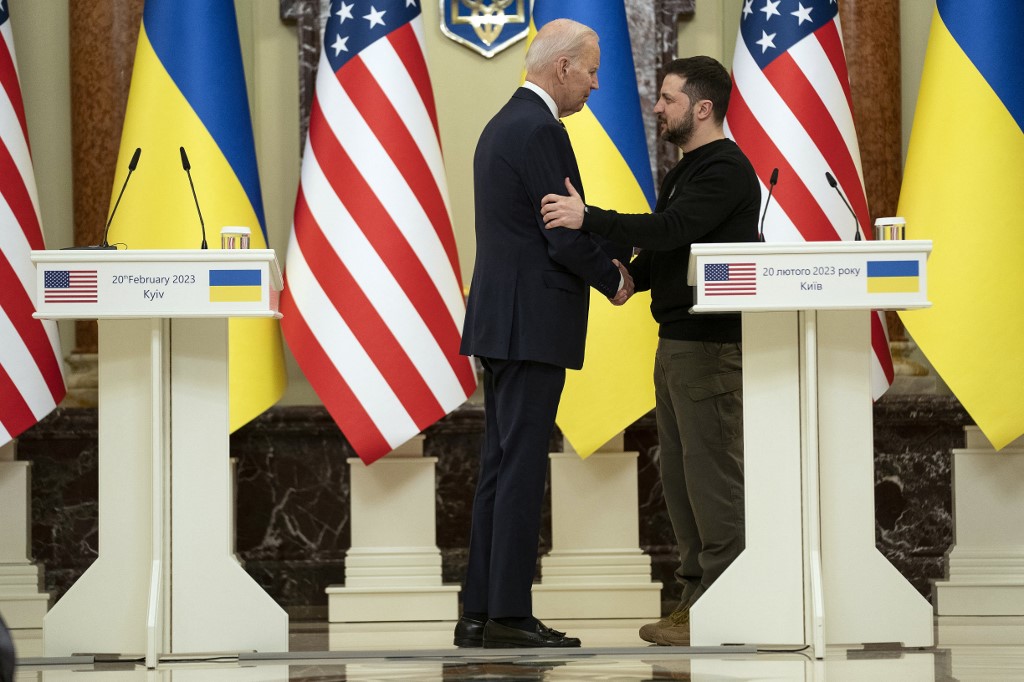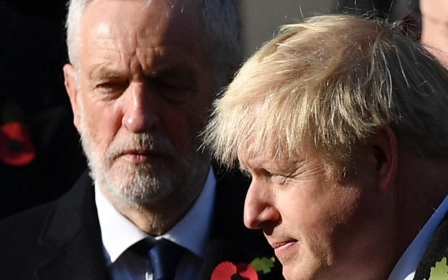Samantha Power and the new war for democracy

There is a new spring in the step of America’s democracy warriors since the Russian invasion of Ukraine last February.
USAID chief Samantha Power writes in the current issue of Foreign Affairs that a turning point was reached last year following the invasion, and the forward march of authoritarianism was halted, due in large part to Russia’s disastrous early military campaign.
The rejection by most of the Global South of the US 'war for democracy' shows how limited an appeal this model of US intervention has beyond the battlefields of the Donbas
The high point of authoritarianism, Power says, was in February 2022, just three weeks before Russia’s full-scale invasion, when Chinese President Xi Jinping and Russian President Vladimir Putin announced a new strategic partnership that they claimed would have “no limits”. Since then China has voiced disquiet about the invasion while maintaining its strategic alliance with Moscow.
In "How Democracy Can Win", Power advocates a familiar form of muscular support for civil society and aid to weak or struggling elected governments on the front line of this "battle", in places such as Zambia and Moldova.
USAID has a budget of around $60bn in the current financial year, the majority of which goes to “international security assistance”, primarily Ukraine ($36.7bn in emergency supplementary funding). The Biden Administration granted the USAID administrator a permanent seat on the National Security Council, a strong indicator of USAID’s key role in US national security strategy.
New MEE newsletter: Jerusalem Dispatch
Sign up to get the latest insights and analysis on Israel-Palestine, alongside Turkey Unpacked and other MEE newsletters
Corporate solutions
While paying lip service to the problems of economic inequality and exclusion, which Power accepts have caused disillusionment with democracy over the past two decades, her formula for tackling this crisis is essentially a familiar one: corporate-led, technocratic programmes to "strengthen" civil society and enable US-backed media.
“The United States and other democracies must work more closely with the private sector and civil society groups to identify challenges, build partnerships, and increase investments in digital freedom around the world,” she writes.
As a pioneer of the responsibility to protect doctrine, Power played a key role in convincing President Barack Obama to intervene and overthrow the Gaddafi regime in Libya in 2011, a war that has had long-term negative consequences for the whole of the Sahel.
There are many buzzwords in the Foreign Affairs piece related to "challenges" to democracy, which unsurprisingly are mostly Russian and Chinese and, according to Power, require the US and its allies to “update democracy assistance programming to respond to ever-evolving threats”.
Power explains that the US and allies “have formed the Coalition for Securing Election Integrity”, which will “help identify critical elections that the United States and other donor countries can help support and monitor”. (This from a country where elections have long been gerrymandered along racial lines to ensure skewed majorities for white Republicans in states such as Florida and Georgia.)
Power favours gestures such as foreign leaders visiting countries to show their support for certain leaders and parties during critical elections, something that is commonly known as foreign interference in domestic politics.
Failures admitted
She accepts that US aid for civic groups has been increasingly ineffective, as support for US-style liberal democracy declines globally in the face of stagnant living standards, and ever-rising inequality and insecurity.
“For the last three decades, advocates of democracy have focused too narrowly on defending rights and freedoms, neglecting the pain and dangers of economic hardship and inequality," Power writes.
The flipside of this is that Chinese development aid, which has built key infrastructure in Africa and Asia, has given Beijing the edge in terms of winning friends across the developing world.
Using aid to fund NGOs and political groups in sovereign states while backing a corporate-led neoliberal policy programme across the world has not, surprisingly, led governments and peoples, with a few exceptions (countries bordering Russia), to embrace US support.
While several of the countries mentioned as recipients of US aid are in Africa - a site of contestation with China - another is Moldova, on the front line in the current war in Ukraine, where US military and civil aid now amounts to $113bn and Joe Biden was the latest visitor to Kyiv. Moldova faces a severe economic crisis and influx of refugees due to the war, and its population is politically polarised. (The fact that some Moldovans oppose the president’s move towards Nato is put down to Russian propaganda.)
There is an inherent contradiction here that Power is determined to ignore: US political funding to aid 'transparency' is political interference
Power explains how US aid had been used in Moldova to expose “external actors’ interference" in the electoral process, by backing pro-Russian parties. There is an inherent contradiction here that Power is determined to ignore: US political funding to aid “transparency” is political interference. It may appear to be benevolent from the US point of view, but from the point of view of states or parties who are deemed hostile to US interests, it is simply doing the same thing that it frequently accuses Russia or China of doing.
Power was in Hungary last week, where USAID is supporting civic groups in support of Budapest's fragile democracy. No doubt Prime Minister Viktor Orban is authoritarian, but the question arises whether this intervention by the USAID chief is primarily about democracy, or about Hungary’s refusal to support the Nato-backed war in Ukraine. As with much USAID activities worldwide, the underlying rationale appears to be a geopolitical drive to limit the influence of states that the US deems a threat to its global dominance.
Unsavoury allies
Another issue is how Power and the US defines a “democratic” civic movement. In Ukraine, it backed some very unsavoury neo-Nazi militias that carried out atrocities in 2014 during the overthrow of the former pro-Russian Ukraine government. In Latin America, it included groups that used street violence to try to remove governments opposed to Washington.
For example, USAID spent $20m in Nicaragua in 2018 during the period of protests against the government of Daniel Ortega. Western media has uniformly characterised the events as a brutal crackdown by an authoritarian regime, leading to 300 deaths.
Supporters of the socialist government, however, say the US was backing a group of right-wing activists and politicians bent on the violent overthrow of the government. Opposition “activists” tortured, killed and literally set fire to Sandinista government workers and police, killing 70, and burnt down dozens of schools, offices and community properties, as a UN OHCHR report documented.
Power feels its success in backing Ukraine in its fight against Putin’s Russia, along with defeats to populists from Donald Trump to Brazil’s Jair Bolsonaro, signifies a new purpose for global liberalism. But the rejection by most of the Global South of the US “war for democracy” shows how limited an appeal this model of US intervention has beyond the battlefields of the Donbas and Russia’s east European frontier.
The worst advert
Could it be that US democracy is the worst advert for Power’s newly invigorated global intervention plan? A democracy where the minimum wage is set at starvation level $7.25 per hour and a fanatical Supreme Court overturned the right to abortion. A democracy where the gun lobby and the rights of AR-15 owners override those of the victims of daily gun massacres. A democracy where up to 46,000 people die each year from homelessness. Where three years after George Floyd police are still murdering Black Americans.
Its democracy sees a Biden administration that bans strikes in a rail industry where workers are denied sickness pay, as its owners make an astounding 50 percent profit rate - $22bn - while stripping back vital safety checks. The result, unions say, was the East Palestine, Ohio derailment and chemical spillage that has poisoned an entire region, with unknown long-term health consequences. All of this was effectively sanctioned by a government dominated by corporate interests.
America is an oligarchy, and it’s in the interests of this ruling corporate elite that the US exports its profoundly flawed “democracy” to a world that no longer wants it.
Middle East Eye delivers independent and unrivalled coverage and analysis of the Middle East, North Africa and beyond. To learn more about republishing this content and the associated fees, please fill out this form. More about MEE can be found here.








